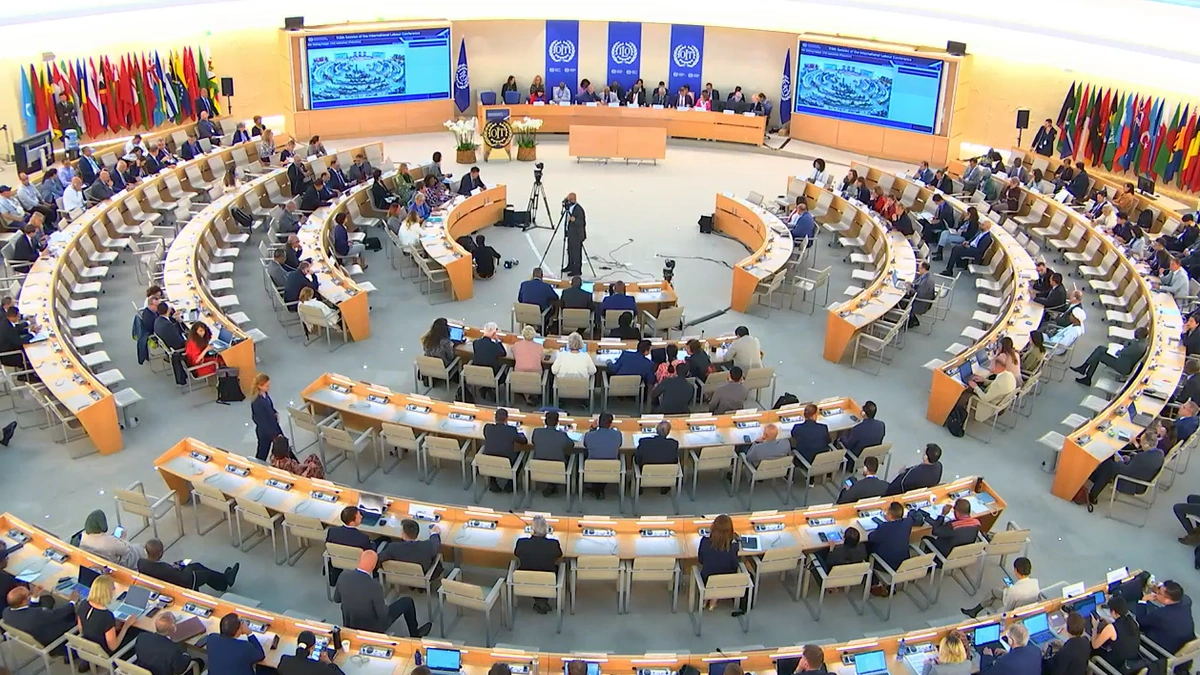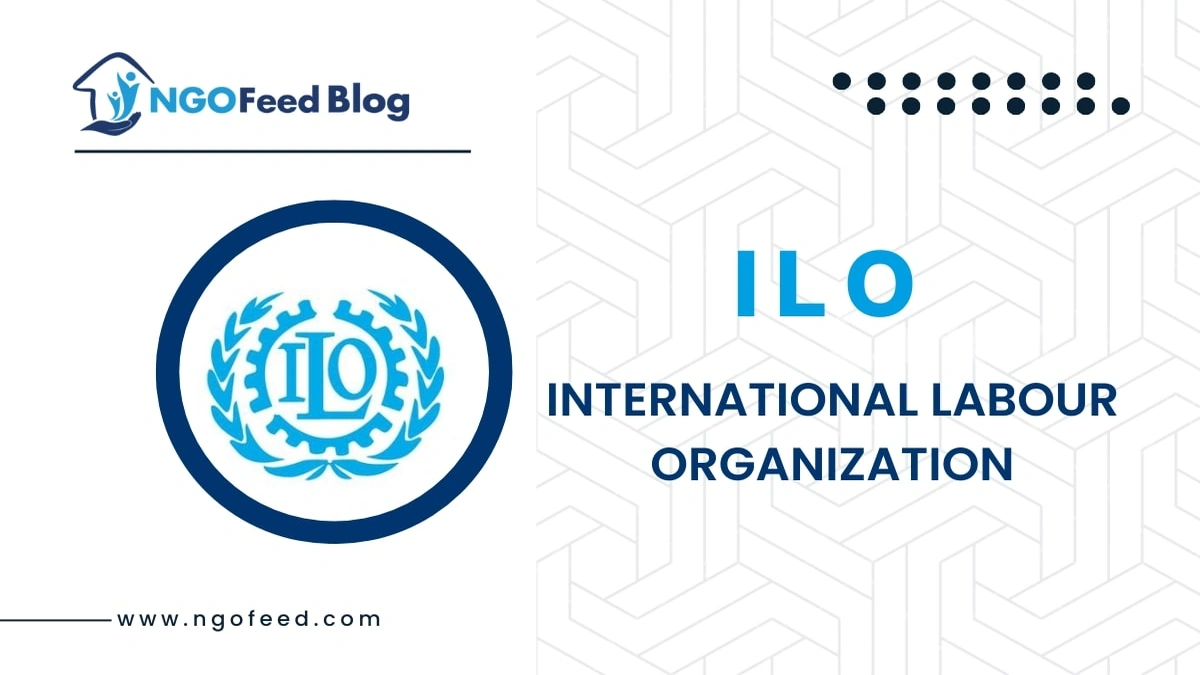Unlocking the Secrets of the ILO | Why It Matters to Every Indian
Okay, let’s be honest. When you hear ” ILO ,” does your mind immediately conjure up images of dry, dusty international organizations? Probably. But here’s the thing: the International Labour Organization ( ILO ) isn’t some distant entity. It’s deeply intertwined with your rights as a worker, the safety standards in your workplace, and even the price you pay for that cool new gadget. What fascinates me is how under the radar this crucial organization operates, especially here in India. So, let’s dive into why the ILO should be on every Indian’s radar. It influences everything from minimum wages to workplace safety – things that matter to us, right?
What Exactly Is the ILO, and Why Should I Care?

The ILO , short for International Labour Organization, is a specialized agency of the United Nations. Now, before your eyes glaze over, think of it this way: it’s basically the global watchdog for workers’ rights. Founded in 1919 (yes, it’s been around for over a century!), its main goal is to promote social justice and decent work conditions around the world. And guess what? India is a founding member. That’s right; we’ve been in this game from the beginning. The ILO sets international labour standards, which take the form of Conventions and Recommendations. These aren’t just suggestions; they’re benchmarks for good governance and fair labor practices. According to the ILO website , these standards cover a huge range of issues, from working hours and wages to occupational safety and health.
But, why should you, sitting in your chai-sipping corner of India, care about these international standards? Because they directly influence Indian labour laws and policies. The ILO’s conventions often serve as a blueprint for national legislation, ensuring that workers across India get a fair deal. Think about it – fair wages, safe working conditions, the right to form unions – all these are influenced, directly or indirectly, by the ILO’s work.
The ILO’s Impact on Indian Labour Laws | More Than You Think
Let’s get specific. How has the ILO actually shaped Indian labor laws? Well, numerous Indian laws are rooted in ILO conventions. For example, laws relating to minimum wage, child labor, and equal remuneration for men and women draw heavily from ILO standards. A common mistake I see people make is thinking that Indian laws are developed in a vacuum. They are influenced by international best practices, many of which are championed by the ILO. The Minimum Wages Act, the Child Labour (Prohibition and Regulation) Act, and the Equal Remuneration Act – all bear the fingerprints of ILO conventions.
And here’s where it gets really interesting. The ILO doesn’t just set standards; it also monitors their implementation. It keeps an eye on whether countries are actually following through on their commitments. This is crucial because it ensures that these laws aren’t just words on paper but are actually enforced. The Indian government regularly reports to the ILO on its progress in implementing labour standards. This process helps identify gaps and areas where improvement is needed, pushing for continuous progress in workers’ rights. But, this process is not without its critics. Some argue that the implementation is slow or that enforcement is weak in certain sectors. The reality, as always, is complex.
Challenges and Opportunities | The Road Ahead for the ILO in India
So, what are the big challenges facing the ILO in India today? Well, one of the biggest is the informal sector. A huge chunk of India’s workforce is employed in the informal sector, where labor laws are often poorly enforced. This includes everything from agricultural workers to construction laborers, street vendors to home-based artisans. Getting these workers under the umbrella of social protection and decent work is a massive challenge. Here’s the thing: the ILO recognizes this challenge and is actively working with the Indian government and other stakeholders to address it. This includes promoting policies that extend social security benefits to informal workers, improving working conditions in informal enterprises, and empowering informal worker organizations. This is where experience counts; seeing how similar problems have been addressed in other developing nations helps to implement effective strategies.
Another challenge is ensuring that labor laws keep pace with the changing nature of work. The rise of the gig economy and platform work is creating new challenges for labor regulation. How do you protect the rights of gig workers? How do you ensure that they receive fair wages and social security benefits? These are complex questions that require innovative solutions.
How Can You Get Involved? (Yes, You!)
Now, you might be thinking, “This is all very interesting, but what can I, as an individual, do about it?” Good question! There are several ways you can get involved. First, stay informed. Follow news and developments related to labor rights and social justice. Second, support organizations that are working to promote workers’ rights. This could be anything from donating to a labor rights NGO to volunteering your time to raise awareness. Third, use your voice. Speak out against unfair labor practices. Write to your elected officials. Share information on social media. Every little bit helps. Let me rephrase that for clarity: even small actions can collectively make a big difference.
And, hey, if you’re a student, consider doing research on labor issues or interning with organizations that are working on labor rights. If you’re a business owner, make sure your workplace practices are fair and ethical. If you’re a consumer, support companies that prioritize fair labor practices. See? There are plenty of ways to contribute. This is not just about the government or the ILO – it’s about all of us working together to create a more just and equitable society.
Here are some useful resources you can use : More Info . And also find out What is the implication of India.
The Future of Work | An ILO Perspective
The world of work is changing rapidly. Automation, artificial intelligence, and globalization are all transforming the way we work. What does the future hold? Well, the ILO has been thinking long and hard about this. According to the latest reports, the ILO believes that the future of work must be human-centered. This means putting people first, ensuring that workers have the skills they need to succeed in the new economy, and protecting their rights in the face of technological change. It also means promoting social dialogue and collective bargaining to ensure that workers have a voice in shaping their future. The ILO emphasizes the importance of lifelong learning, social protection, and gender equality in the future of work. As per the guidelines mentioned in the information bulletin, adapting to the changing landscape is crucial.
So, there you have it. The ILO : it’s not just a dusty international organization; it’s a vital force for social justice and decent work in India and around the world. Remember, fair wages, safe working conditions, and the right to organize – these aren’t just abstract principles; they’re the foundation of a just and prosperous society. And the ILO is there to help make sure we get there. It’s time we paid attention.
FAQ Section
Frequently Asked Questions
What exactly does the ILO do?
The ILO sets international labor standards, promotes decent work, and provides technical assistance to countries to improve their labor laws and policies.
How does the ILO impact India specifically?
The ILO’s conventions influence Indian labor laws, particularly in areas like minimum wage, child labor, and equal remuneration.
What are some of the biggest challenges facing the ILO in India?
One of the biggest challenges is extending social protection and decent work to the vast informal sector.
How can I get involved in promoting workers’ rights?
Stay informed, support labor rights organizations, use your voice to speak out against unfair labor practices, and support companies that prioritize fair labor.
Is India a member of the ILO?
Yes, India is a founding member of the ILO.
Where can I find more information about the ILO?
You can visit the official ILO website at www.ilo.org .













